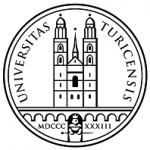项目介绍
The Amsterdam School of Communication Research (ASCoR) is looking for a highly motivated PhD candidate for the project “Generative AI in our daily lives: Unravelling the Trust-and-Use Calibration Dynamics.” This four-year PhD project, embedded within the Communication, Organizations and Society Program Group, will be supervised by dr. Floor Fiers, dr. Felicia Loecherbach, dr. Anne Kroon and prof. dr. Theo Araujo.
Hundreds of millions of individuals now interact with generative artificial intelligence (GenAI) in the form of conversational agents such as ChatGPT. Originally, GenAI attracted curiosity due to its ability to hold coherent conversations and generate credible text, images, and videos. Now, individuals integrate GenAI-agents to their routines, asking for recommendations, as productivity tools for work or school, or even as companions for emotional support. While useful, GenAI is not without risks and the adoption of this potentially useful, yet untested technology is a major societal challenge.
We know, however, astonishingly little about how individuals use GenAI-agents in their personal lives, and even less about under which circumstances they trust these agents. This project fills this gap in our knowledge, investigating how individual characteristics influence trust development and the over-time dynamics of trust-and-use of GenAI-agents.
What are you going to do
This PhD project takes a mixed-methods approach, combining both quantitative and qualitative research. Over the course of the project, you will conduct three interconnected studies: (1) conduct in-depth interviews to understand how individuals use Generative AI in their daily lives; (2) deploy a cross-sectional survey to understand how individual characteristics influence trust and use; and (3) use a longitudinal panel, investigate how trust-and-use dynamics evolve over time. All studies deploy a citizen science approach, in which participants donate their digital trace data to research using a secure and privacy-protecting data donation infrastructure.
You will:
- Design, prepare and analyze the data for all studies, write academic articles that will be part of your dissertation, and submit these articles to international scientific journals.
- Present your work in (inter)national academic conferences.
- Manage the project, including scheduling meetings with the supervisory team, preparing agendas, and documenting meetings and research activities.
- Contribute to the ASCoR research community by participating in workshops, meetings, and lectures.
- Support teaching activities at the Bachelor’s level (up to approximately 10% of your time);
- Participate in the research and dissemination activities of a broader project on Generative AI use by individuals (funded by the Dutch National Science Foundation, NWO).
What do you have to offer
You have:
- A (research) master’s degree in communication science or a related field, or expect to obtain it soon.
- Demonstrated experience and/or training in the research methods included in this project (including in-depth interviews, survey research, content analysis).
- Experience or demonstrated interest in computational methods (e.g., automated content analysis) are a plus.
- Skills to handle and analyze complex datasets.
- An interest in open science principles and a commitment to methodological rigor and scientific integrity.
- Excellent spoken and written English. Proficiency in Dutch is strongly recommended, else having willingness to learn the language.
You are able to:
- Show curiosity in exploring insights from various disciplines and a readiness to learn new skills and methods as the project evolves, adapting to challenges with resilience and creativity;
- Maintain a proactive attitude, be open to feedback, and pay attention to detail;
- Manage your own time effectively and work independently while collaborating well within a team;
- Keep a cool head and stay organized when juggling multiple tasks;
- Communicate research findings clearly to both academic and non-academic audiences.
What else do we offer
The planned starting date for this project is late April 2025, but there is some flexibility with regard to the starting date. The position concerns temporary employment of 38 hours for a maximum term of four years. The initial employment is for one year. Following a positive assessment and barring altered circumstances, this term will be extended by a maximum of 36 months, which should result in the conferral of a doctorate. We will put together a curriculum that will also include the opportunity to attend training courses and both national and international events. You will also be tasked with teaching (Bachelor’s) students for up to approximately 10% of the contract.
- A position in which initiative and input are highly valued;
- A position centered on your growth, with ample opportunities for scholarly and professional development, including the option to take Dutch language courses;
- A supervision team with the goal to supervise and advice the PhD candidate in their work and professional development through regular team meetings;
- A daily supervisor who is available for the PhD candidate for regular contact on all matters relevant to the candidate;
- An enthusiastic and warm department that is open to new colleagues;
- A large, welcoming community of PhD candidates working on various projects within Communication Science;
- While frequent presence at the office is valued in terms of cohesion and team building, we offer the opportunity to work hybrid (i.e., to work from home from time to time).
联系方式
电话: +31 (0)20 525 1400相关项目推荐
KD博士实时收录全球顶尖院校的博士项目,总有一个项目等着你!





